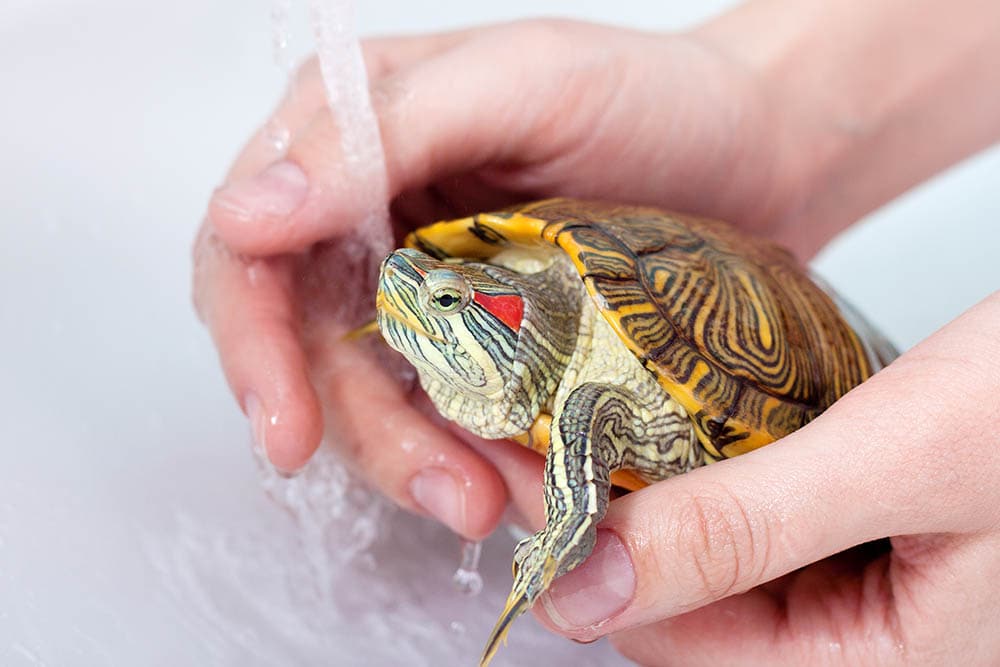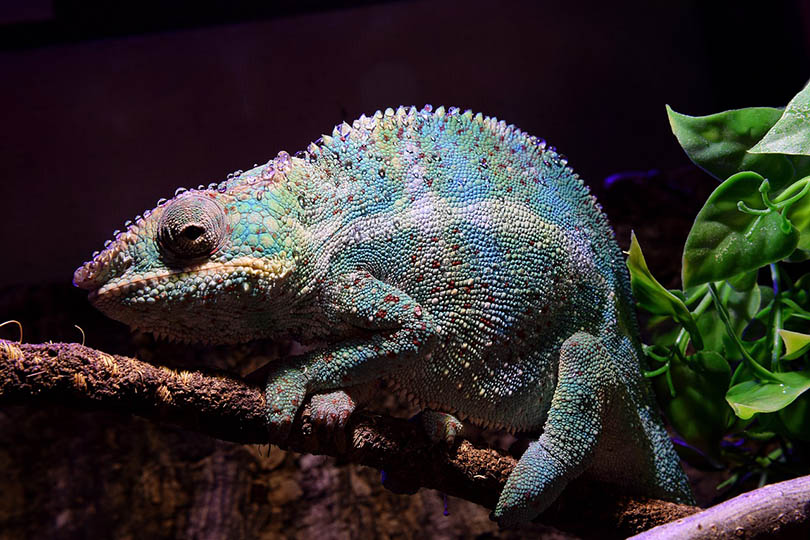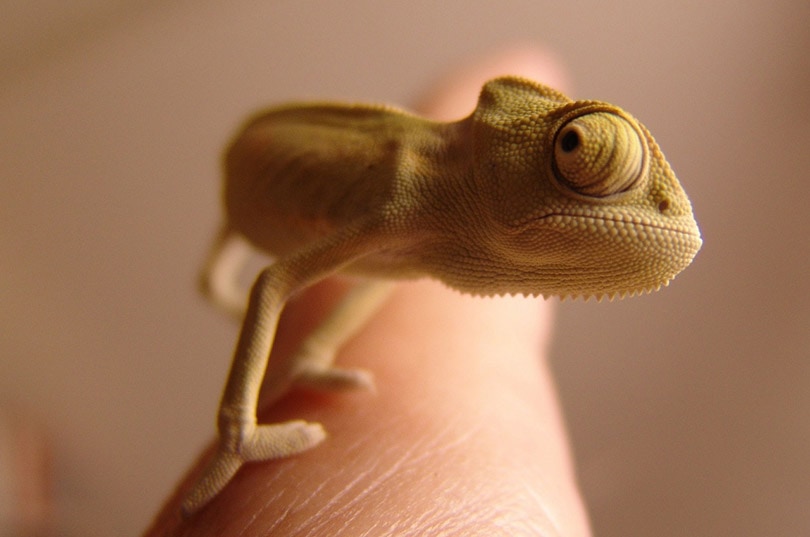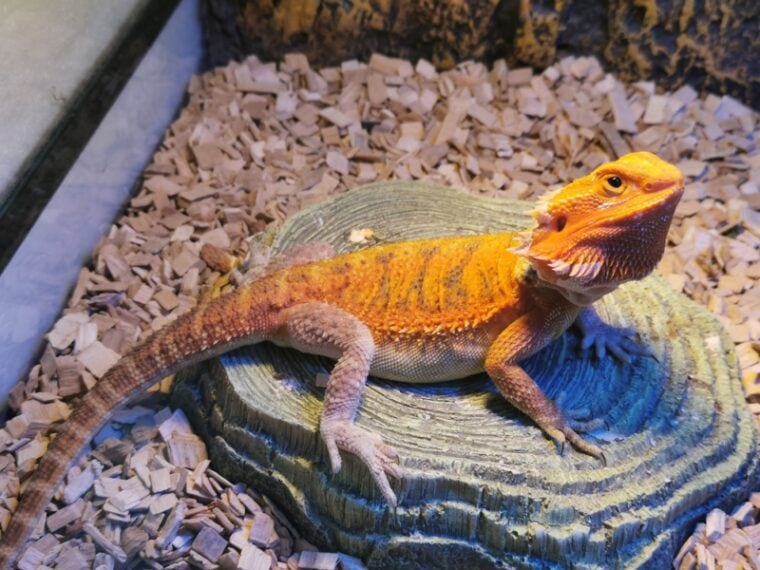
Reptiles require very specific care, and the care they require can vary significantly between species. One thing that the majority of pet reptiles have in common is egg-laying. Many reptiles will produce eggs, even without a male present, so egg-laying is a common thing that many reptile owners experience.
Unfortunately, some reptiles can have difficulty with egg production and laying, leading to a form of dystocia, or what you more commonly will hear referred to as egg binding. If you’re a reptile owner, here’s what you need to know about this painful and dangerous condition.
What Is Egg Binding?
Egg binding is a condition in which a female reptile forms eggs within her body, but she is unable to successfully pass the eggs. The simplest explanation for egg binding is a stuck egg. Think of it like a mammal who is unable to birth a baby due to the size or positioning of the baby. Something similar can also occur in reptiles. Egg binding can occur with any number of eggs, so it isn’t exclusive to the presence of multiple eggs.
If egg binding is suspected, then the reptile should be taken to a veterinarian. The best way to definitively diagnose egg binding is an X-ray, but lab work may also be recommended to rule out infections and other potential issues.
In some cases, it can be difficult to determine if your reptile is egg-bound or experiencing normal egg-laying signs.
What Are the Signs of Egg Binding?
There are not very many signs of egg binding in reptiles, which should make it easier for you to determine if that might be going on. You may notice excessive digging and pushing in an attempt to pass the eggs.
Normally, most reptiles will lay all of their eggs in a singular nest, but egg-bound reptiles may attempt to dig or make multiple nests. The discomfort of being egg-bound can also lead to a general state of restlessness in your reptile.
Swelling of the cloaca, which is the tract that houses both the urogenital and digestive systems, is also common. Over time, you may begin to see tissue protrusions from the cloaca.
If your reptile is experiencing egg binding for an extended period, then you will start to see signs of depression and lethargy. Loss of appetite can also go hand in hand with lethargy and depression. In most cases, the process of egg laying should take no longer than 48 hours, so if you’re seeing signs of egg laying, like digging and some restlessness, then your reptile may not need any help.
If you see any lethargy, depression, changes in appetite, unusual behaviors, or egg-laying behaviors that exceed 48 hours, then you should get your reptile to a vet as soon as possible.
What Are the Causes of Egg Binding?
How Do I Care for a Reptile With Egg Binding?
How to care for your reptile with egg binding will vary based on the cause of the egg binding. If you’re dealing with a husbandry issue, then it should be corrected. If there is a lack of a nesting site, then providing your reptile with her preferred type of nesting materials may stimulate the egg-laying process. In some cases, eggs must be massaged out of the cloaca, but this should not be attempted without fully knowing what you’re doing. In many cases, a veterinarian should be the one to perform this procedure. Hormone injections can be used to stimulate egg-laying and support the entire egg-laying process if needed.

Your vet may need to reduce the size of the eggs by using a needle to remove the insides of the eggs if none of these other things have worked. As a last-ditch effort, your reptile may need surgery to remove the eggs.
Once your reptile is no longer egg-bound, it’s important for you to ensure that all of your husbandry is on point to prevent further issues.
Frequently Asked Questions (FAQs)
How long can a reptile stay egg-bound?
Your reptile can stay egg-bound indefinitely until she is extremely ill. It’s generally not recommended to wait more than 48 hours past normal egg-laying attempts to have your reptile seen by a vet. Depending on the course of action your vet takes, your next steps will vary, but it’s usually not recommended to allow more than another 48 hours to pass before attempting additional interventions.
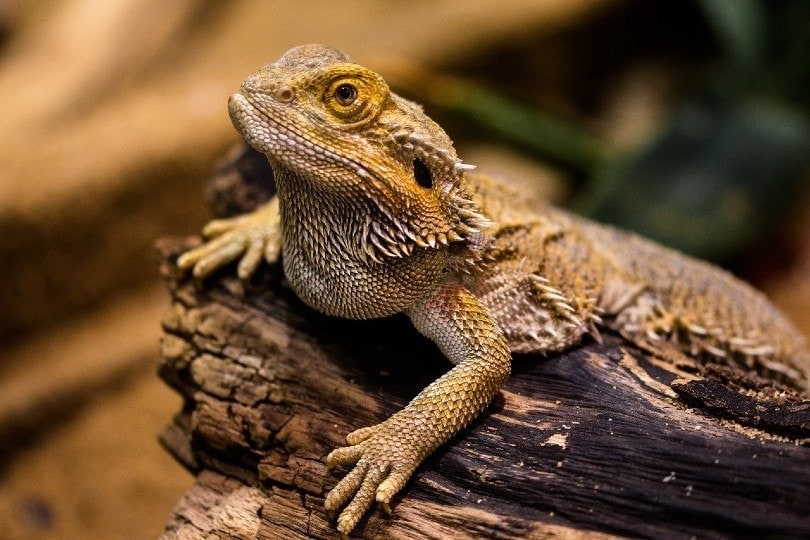
How can I prevent repeated egg binding?
Regardless of the cause of your reptile’s initial egg-binding event, ensuring your husbandry is exactly as it should be can help prevent further egg-binding events. You can also talk to your vet about supplements, foods, and husbandry changes that may help to prevent egg binding in the future.
What happens if I don’t get my reptile treated?
If you have a reptile that is experiencing egg binding, it’s essential that you get her treated. Without treatment, egg binding will only get worse until you are forced to provide emergency veterinary care for your reptile. If left long enough, egg binding can lead to damage to the reproductive tract, causing egg binding to occur more frequently. If not treated at all, egg binding can eventually lead to death.
Conclusion
Egg binding can be dangerous for your reptile, but it is a treatable condition when caught early enough. It’s important to ensure that your husbandry is appropriate for your reptile to keep her healthy. It’s also important for you to keep a close eye on your reptile, checking in on her, at minimum, three times per day.
The more you check in on her, the more likely you’ll be to catch a problem early enough to get appropriate treatment for her.
Featured Image Credit: Kitmaumau, Shutterstock


